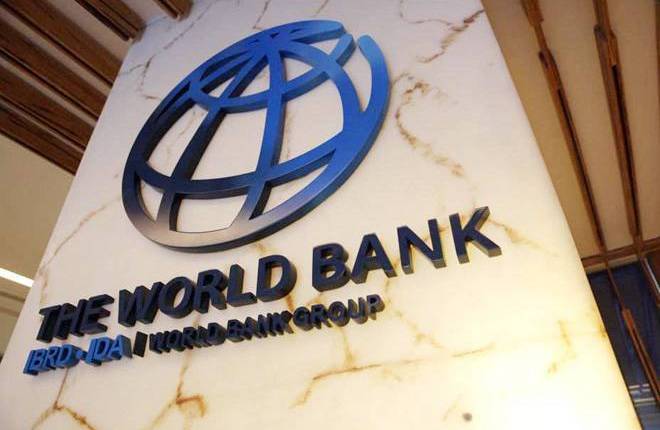How To Manage The World’s Fertilizers To Avoid A Prolonged Food Crisis – World Bank Group

Hidden behind the worst global food crisis in a decade, fertilizer prices have skyrocketed and remain volatile . This poses a serious threat to food security, as the planting season starts this summer. So far, the war in Ukraine has mostly affected countries importing wheat and corn. But many countries, including some major food exporters, are net fertilizer importers. Persistently high fertilizer prices may spread to a broader variety of crops including rice, a staple which has not yet seen war-related price hikes. We must act now to make fertilizers more accessible and affordable to avoid prolonging the food crisis.
The World Bank’s fertilizer price index rose nearly 15 percent from earlier this year – prices have more than tripled compared to two years ago. High input costs, supply disruptions, and trade restrictions are driving the recent spike. Natural gas prices started rising last fall as tensions between Russia and Ukraine escalated leading to widespread production cutbacks in ammonia—an important part of nitrogen-based fertilizers. Similarly, the rising price of coal in China, the main feedstock for ammonia production there, forced fertilizer factories to cut production.
To ease the current food crisis, action needs to be taken now to maintain food production by making fertilizers more accessible and affordable. There are several ways to do this.
First, countries should lift trade restrictions or export bans on fertilizers. Export restrictions make things worse, putting fertilizers further out of reach of poorer developing countries who face the highest levels of food insecurity and hunger. As of early June, there were 310 active trade measures across 86 countries affecting food and fertilizers, and nearly 40% of these have been restrictive. This number is now approaching levels not seen since the 2008-2012 global food price crisis. To facilitate trade, countries can reduce delays and cut compliance costs by getting rid of unnecessary red tape for importing targeted goods.
One of the local bottlenecks of global fertilizer trade is the financing needs of manufacturers, traders, and importers. In some cases, the financing needs for fertilizer buyers have tripled, compounding the general scarcity of local commercial bank financing in many of these markets. Short-term credit facilities and guarantees, mobilized with the support of international development actors, may be necessary in some cases.
Second, fertilizer use must be made more efficient. This can be done by providing farmers appropriate incentives that do not encourage their overuse. Nitrogen use efficiency, for example, ranges from 30-50 percent in general. Meanwhile, the European Union Nitrogen Expert Panel recommends nitrogen use efficiency of around 90 percent. Subsidies that encourage excessive use of fertilizers also encourage wastage. Even worse, this has devastating environmental and climate change implications.
More efficient use of fertilizers can help ensure available supplies go further, especially to countries most in need. Rich countries consume 100 kilograms of fertilizers per hectare, nearly twice as much as developing countries. Sub-Saharan Africa consumes the least, with about 15 kilograms per hectare.
There are opportunities to rework public policies and better target scarce public expenditures to create the incentives for more productive and sustainable use of fertilizer. An example of the kind of transformation that is possible are the reforms that the European Union’s 1992 Common Agriculture Practice (CAP) implemented. Prior to these reforms, support to EU’s agricultural sector – such as minimum prices, import tariffs, government purchases – kept EU farm prices above world rates, which encouraged excessive use of fertilizers. With the reforms, support to the EU CAP shifted to direct payments and farm prices became more closely aligned with world prices. These changes increased the incentives to use fertilizer more efficiently.
Third, we must invest in innovation to develop best practices and newer technologies that will help increase output per kg of fertilizer used. This includes investing in knowledge to ensure the best suited fertilizer and quantity are applied to specific crops. We must also invest in soil health to maximize the effectiveness of fertilizers.
Precision agriculture is one example of such improved technologies that are already available. Fertigation is another, which combines fertilization with irrigation, using fertilizers in measured quantities determined by sensors. But much more can and needs to be done by investing in pushing the frontiers of knowledge to make sure waste is minimized, only the right amount is applied as is needed for a particular plant at a particular stage of growth. Another option is to supplement conventional fertilizers with viable bio-fertilizers and practices. This will not only help with the current supply challenges, but also reduce the impact of fertilizers on the climate, and on soil and water resources.
Our ability to maintain global trade and the movement of fertilizers will be one of the determining factors on the length and severity of this food crisis. As farmers have started to alter their production due to challenges in fertilizers, policy makers must urgently make the right choices so that the world can cut short the current food crisis.





